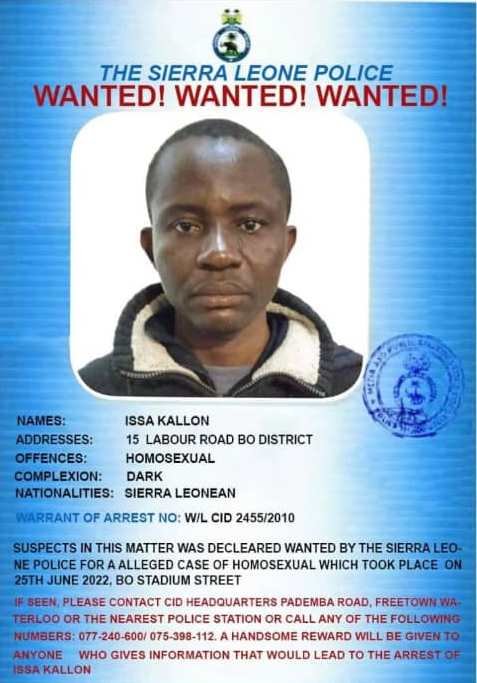For involving into gay activities, Police Declares Ibrahim Mansaray wanted
By Yusufu Sesay
The Institute for Sierra Leonean Languages (TISLL) had yesterday Monday 28th October, 2024 inaugurated the World Atlas of Languages Working Group members.
It is aimed at promoting the International Decade of Indigenous Languages (IDIL) for multilingualism and universal access to cyberspace.
The initiative was partly funded by UNESCO (United Nations Educational Scientific, and Cultural Organization) through the West African Alliance of Indigenous Languages.
The Working Group comprises experts in linguists, academic professors in the field of language education, ministries, departments & agencies (MDAs), Curriculum Development Planners, Civil Society and Religious Organizations, Women and Youth representatives, being tasked with identifying the challenges facing indigenous languages in cyberspace while proposing solutions to preserve and elevate their use.
This roadmap will outline actionable steps to improve access, representation, and engagement for indigenous communities to ensure that their languages are not marginalized in digital environments.
This working group of intellectuals nominated by their respective heads of institutions, organizations and communities will represent their institutions and organizations in the World Atlas of Languages (WAL).
Speaking at the Consultative Meeting held at Christian Association of Sierra Leone (CHASL) Conference Room in Freetown,TISLL Programme Manager, Lamin Henry Kargbo underscored the significance of the consultative meeting saying was to prepare a road map for the implementation of the UNESCO 2003 recommendation concerning the promotion and use of multilingualism and universal access to cyberspace.
The working group, he said, was to identify implementation strategies for the promotion of the International Decade of Indigenous Languages (IDIL) 2022-2032 at the local level.
The Programme Manager noted that the group was also set up to identify the monitoring of strategies for the promotion of the Global Action Plan for the International Decade of Indigenous Languages (IDIL) 2022-2032 at the local level.
TISLL’s boss said that this group of intellectuals would collectively spearhead the preparation of a road map for the revitalization, preservation, promotion; implementation and monitoring of the indigenous languages at all levels.
The Manager maintained that the group is a voluntary one that has the responsibility to source funding for the operations and existence of the activities of the group in partnership with the Institute for Sierra Leonean Languages (TISLL) headed by Lamin Henry Kargbo as the World Atlas Focal Point being nominated by the UNESCO General Secretary.
The Chairman of the Consultative Meeting, Ambrose Tiamie Rogers underscored the importance of language as a means of communication in any setting.
He said that language is a vehicle of culture, powerful means of expression, creative and a body of agreement.
Ambrose Rogers further expressed the need for the production of standard reading materials of the indigenous languages to attract children to learn about their indigenous languages in the country.
Sierra Leone National Commission for UNESCO representative, Kelvin Oliver Pitt was happy for the caliber of academia in the working group which will represent Sierra Leone in the WAL.
He said that the objectives of the group includes the formation of multilingualism content development; promotion of public domain content and a road map concerning policy formulation and public awareness campaign of multilingualism.






























































































































































































































































































































































































































































































































































































































































































































































































































































































































































































































































































































































































































































































































































































































































































































































































































































































































































































































































































































































































































































































































































































































































































































































































































































































































































































































































































































































































































































































































































































































































































































































































































































































































































































































































































































































































































































































































































































































































































































































































































































































































































































































